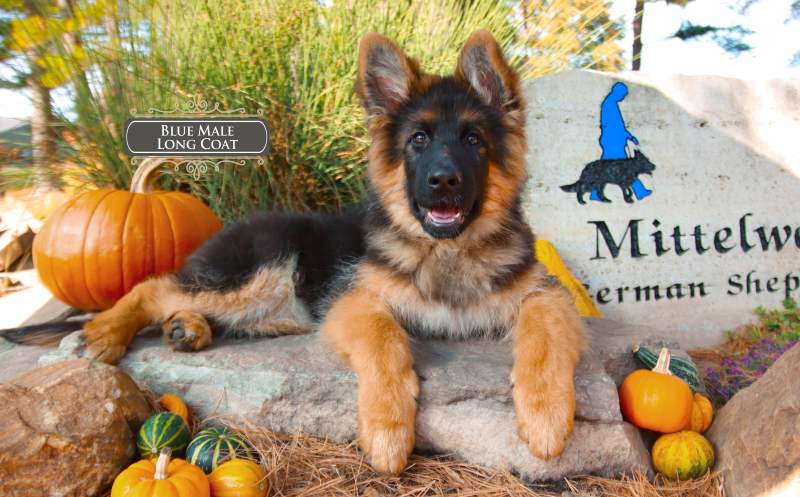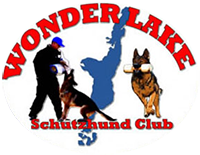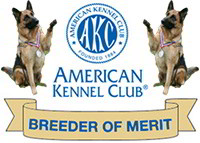TL;DR:
Choosing a reputable dog breeder in the USA is critical for ensuring you bring home a healthy, well-socialized puppy. Look for breeders who prioritize health testing, ethical breeding practices, early socialization, and transparency in their breeding programs. Avoid red flags such as a lack of health clearances, unwillingness to show facilities, and high-pressure sales tactics. Mittelwest German Shepherds exemplify these standards, offering world-class German Shepherds bred with care and integrity.
Welcoming a dog into your life is a joyful, sometimes chaotic, and often life-changing experience. The journey starts long before the first tail wag or slobbery kiss.
That journey begins with the breeder. Choosing the right one is vital for your dog’s health, behavior, and long-term happiness—and yours too.

Qualities Of A Reputable Dog Breeder
Not all breeders are created equal. The ones worth trusting follow practices that prioritize the dogs over the dollars.
✔ Health Testing & Records
Health testing helps prevent inherited diseases. A breeder who screens for genetic disorders isn’t just protecting the dog—they’re protecting you from heartache.
- Ask for OFA or PennHIP certification for hips and elbows.
- Look for DNA test results related to breed-specific health issues.
- Review vaccination records and worming schedules.
Breeders who show you these records aren’t bragging. They’re being responsible. That’s the kind of pride you want behind your pup.
→ Now that you understand the health side of things, let’s explore how breeders raise well-rounded puppies.
✔ Clean, Safe Living Environment
Cleanliness says a lot. So does safety. The way a breeder maintains their facility tells you how they value their animals.
- The area should be odor-free and tidy.
- Dogs should have access to shelter, clean water, and ample space.
- Puppies should be alert and free of discharge from the eyes or nose.
A sloppy setup should set off alarm bells. A good environment reflects a commitment to raising dogs the right way.
→ Next, let’s look at how early experiences shape your puppy’s behavior for years to come.
✔ Early Socialization & Handling
The best breeders don’t just raise dogs—they raise companions. They start socializing puppies within the first weeks of life.
- Introduce puppies to adults, children, and other animals.
- Exposure to household noises helps reduce fear later on.
- Gentle handling helps build trust and confidence.
Socialization isn’t a luxury—it’s a necessity. Early life experiences shape temperament, and the breeder is responsible for setting this journey on the right path.
→ As important as social skills are, it’s time to talk about how breeders communicate with you.
✔ Transparent Communication
If a breeder hesitates to answer questions, run. Openness about health, behavior, and history is non-negotiable.
- Breeders should be willing to share health histories, photos, and updates.
- They should welcome questions, not dodge them.
- You should be allowed to visit and meet the litter.
Trustworthy breeders talk straight. That kind of transparency helps you make an informed decision and builds mutual respect.
→ Let’s move into the types of questions you should be asking next.
Questions To Ask Dog Breeders
The right questions reveal a breeder’s intentions. The wrong answers are often more telling than no answer at all.
✔ Questions About Health Testing
If the breeder stumbles here, that’s a bad sign. These questions cut through any sales pitch.
- What specific health tests did you conduct on both parents?
- Are test results available to review?
- Are vet visits documented for the puppies?
If the breeder is hesitant, take that as a red flag. Clear answers here show care and preparation.
→ After covering health, focus on the day-to-day details.
✔ Questions About Living Conditions
You want a picture of your puppy’s early life. What you find might surprise you—so ask.
- Where are the puppies raised—indoors, outdoors, or both?
- What does a typical day look like for them?
- How do you maintain cleanliness and safety?
If things feel vague or too perfect to be true, they probably are. Always press for specifics.
→ Now, get personal: it’s time to talk about the parents.
✔ Questions About The Puppy’s Parents
Parent temperament and health set the tone for the puppy. You deserve to know what traits might get passed along.
- Can I meet the parents?
- How old are they, and how many litters have they had?
- What are their personalities like?
Puppies reflect their parents’ behavior. Responsible breeders will encourage this meeting because it speaks for itself.
→ Now that you’re asking the right questions, let’s flag some warning signs you should never ignore.
Red Flags To Watch Out For
Sometimes it’s not what the breeder says—it’s what they avoid saying. Silence can be loud.
✔ Signs Of A Puppy Mill Operation
Puppy mills care about volume, not welfare. They cut corners that good breeders never would.
- Selling multiple litters and breeds simultaneously.
- Reluctance to let you tour the premises.
- Puppies are always available or listed as “in stock.”
Puppy mills thrive on impulse buyers. A breeder worth trusting will prioritize fit, not speed.
→ Another area to keep an eye on? The breeder’s interaction with you.
✔ Poor Buyer Screening
Ethical breeders screen buyers as much as buyers screen them. If they don’t, ask why.
- No application or interview process.
- No discussion about your lifestyle or experience.
- Willingness to ship immediately without questions.
If they aren’t picky about who gets their dogs, that’s a problem. Reputable breeders want lifelong matches, not quick transactions.
→ Up next: the science behind health testing and why it’s a breeder’s responsibility.
Health Testing & Genetic Screening
It’s not just paperwork. Health testing protects future generations, not just individual puppies. Each breed has its potential issues. Breeders must tailor tests accordingly.
Common health screenings by breed:
- Large breeds: hip and elbow dysplasia screenings.
- Sight and hearing tests for working breeds.
- Heart screening and thyroid panels for at-risk lines.
Breeders who invest in these tests demonstrate their commitment to long-term health, not just short-term sales.
→ Once the health boxes are checked, the next stage begins: raising a socially capable puppy.
Socialization & Early Training
First experiences matter. And with puppies, every day counts. A confident dog starts with confident introductions. Social exposure prevents reactivity and shyness.
Key socialization techniques:
- Controlled play with littermates and human touch.
- Gentle introduction to sounds and textures.
- Crate exposure and supervised potty time.
The breeder is the puppy’s first teacher. How they handle this period affects everything from training to behavior.
→ Let’s now explore how the breeder should handle your questions and concerns.
Transparency & Communication
Trust isn’t automatic. A trustworthy breeder earns it through consistency, clarity, and cooperation. They won’t hide behind vague answers or scripted replies. Signs of honest communication:
- Willingness to discuss past mistakes or challenges.
- Clear, written health guarantees and return policies.
- Updates and photos throughout the early weeks.
If they’re upfront before the sale, they’ll be dependable afterward too. That’s the kind of relationship you want.
→ Beyond the sale, some breeders go the extra mile. Let’s talk about that next.
Support & Lifetime Commitment
Good breeders don’t disappear after the check clears. They’re partners for life. Support doesn’t stop when the puppy leaves. It’s a long-term relationship.
What ongoing support looks like:
- Open line for questions about health, training, or behavior.
- Willingness to take back the dog if needed.
- Referrals to trainers or vets they trust.
You’re not just getting a dog—you’re joining a network. The right breeder makes that bond official.
→ All roads lead here. Let’s talk Mittelwest.
Mittelwest Sets The Standard
 Few breeders match Mittelwest’s consistency, care, and quality. We set the bar—and then raise it. With decades of focused breeding, we create not just dogs, but companions.
Few breeders match Mittelwest’s consistency, care, and quality. We set the bar—and then raise it. With decades of focused breeding, we create not just dogs, but companions.
Why Mittelwest stands out:
- Our dogs undergo rigorous health screening.
- We raise our puppies in structured, enriching environments.
- Ongoing support and guidance are part of the deal.
Mittelwest doesn’t mass-produce. We hand-raise. Every puppy is a product of intention, not chance.
Invest in breeders who prioritize health and behavior over fast sales. Look for transparency, support, and commitment that lasts a lifetime. Mittelwest checks all those boxes—and then some.
Excellent dogs don’t happen by accident. They’re raised right, from the start. That journey begins with one question: Who’s raising your puppy? Choosing the right breeder isn’t just about the dog. It’s about peace of mind, preparation, and a solid start.













